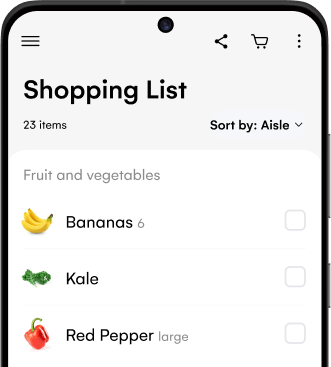Cornstarch is a must-have in any kitchen! It’s that fine, white powder you reach for when you need to thicken sauces, soups, or desserts. It’s made from the starchy part of corn kernels. And while it doesn’t have any flavor, it easily dissolves in liquids to give your dishes the perfect texture.
But did you know it’s more than just a thickener? In this blog, we’ll show you how cornstarch can level up your favorite recipes, how it works as a handy substitute, and why it’s a game-changer for gluten-free cooking. So, here’s our ode to cornstarch and all the ways it can make your meals even better!

Cornstarch Hacks for Everyday Recipes
Cornstarch is a kitchen game-changer for all kinds of homemade recipes. You’ve probably used it once or twice, but it’s definitely one of those pantry staples everyone should have in their kitchen. Not convinced? See how this cheap-as-chips ingredient brings magic to both sweet and savory dishes:
- Smoother sauces
Want smooth, creamy sauces like gravy or soup? Mix cornstarch with cold water first before adding it to the heat. It’s the quickest trick to keep your sauces lump-free and the right consistency, every time! - Creamier desserts
Cornstarch is key to getting that rich, creamy texture in desserts like classic chocolate pudding. (Oh and you should definitely try that chocolate pudding recipe! Made with milk, sugar, cocoa powder, and a bit of cornstarch, it’s always a hit.) - Perfectly coated stir-fries
Cornstarch helps give stir-fry sauces a glossy, restaurant-style finish. Just mix cornstarch with soy sauce, sesame oil, and ginger for a quick, tasty sauce that sticks perfectly to veggies and meat! - Fluffier baked goods
Add a little cornstarch to your pancake batter, and you’ll get lighter, fluffier pancakes. It’s one of the best pancake hacks going. Adding a bit of cornstarch helps soften up the texture, while still giving you a pancake which holds up perfectly with all your favorite syrup and toppings! - Crispier fried foods
Want that extra-crispy batter on fried chicken or vegetables? All you have to do is combine cornstarch with flour in your breading mixture to create a light, crispy coating. Another alternative is potato starch, which is common in some Asian cuisines. - Make your own powdered sugar
Out of powdered sugar? No problem! Just blend regular sugar with a tablespoon of cornstarch for a quick, easy substitute. Done and dusted!
But if you’ve run out of this magic ingredient, what else can you use?
5 Perfect Cornstarch Substitutes

Is your box of cornstarch empty? Don’t worry! Here are some versatile and healthy alternatives to cornstarch that will get the job done!
- Arrowroot Powder: Need a gluten-free thickener for clear sauces? Arrowroot’s got you covered—no cloudiness here. It works just like cornstarch, no adjustments needed to amounts or anything else!
- Tapioca Starch: A great gluten-free choice! It’s perfect for pies, puddings, and creamy dishes. Just use 2 tablespoons of tapioca starch for every 1 tablespoon of cornstarch. Easy swap!
- Potato Starch: Want a smoother texture in soups and sauces? Potato starch is your go-to! It’s more powerful than cornstarch, so use half the amount called for in the recipe.
- Rice Flour: A staple in Asian cooking and a great substitute for cornstarch! It’s not as strong, so double the amount to get the same thickening power.
- All-Purpose Flour: In a pinch? All-purpose flour can do the job! It’s not as strong as cornstarch, so just double the amount when using it in recipes. And remember, it’s not gluten-free.
To learn more about cornstarch substitutes, check out our in-depth guide here!
Why Cornstarch is a Must-Have for Gluten-Free Cooking

Cornstarch is a key player in gluten-free cooking. Because it’s naturally gluten-free, it provides essential structure and texture to recipes. Use it to replace wheat flour for thickening sauces, soups, and desserts. You don’t even have to go for recipes which are designed to be gluten free. Instead, you can improvise and substitute it for wheat flour in most cases, so it’s an ideal ingredient for celiacs. Plus, its neutral flavor means it won’t change the taste of your dishes.
In baking, cornstarch pairs beautifully with alternative flours like almond or coconut. If you use it, you’ll probably be surprised by the results: lighter, fluffier cakes, cookies, and pastries! This is especially useful for creating baked goods that might otherwise be dense or crumbly without gluten’s elasticity.
Your Secret Ingredient
So, how impressive is cornstarch? This kitchen superstar takes your cooking and baking to new heights! Next time you grab that box of cornstarch, think about all the creative ways to use it beyond just thickening.
